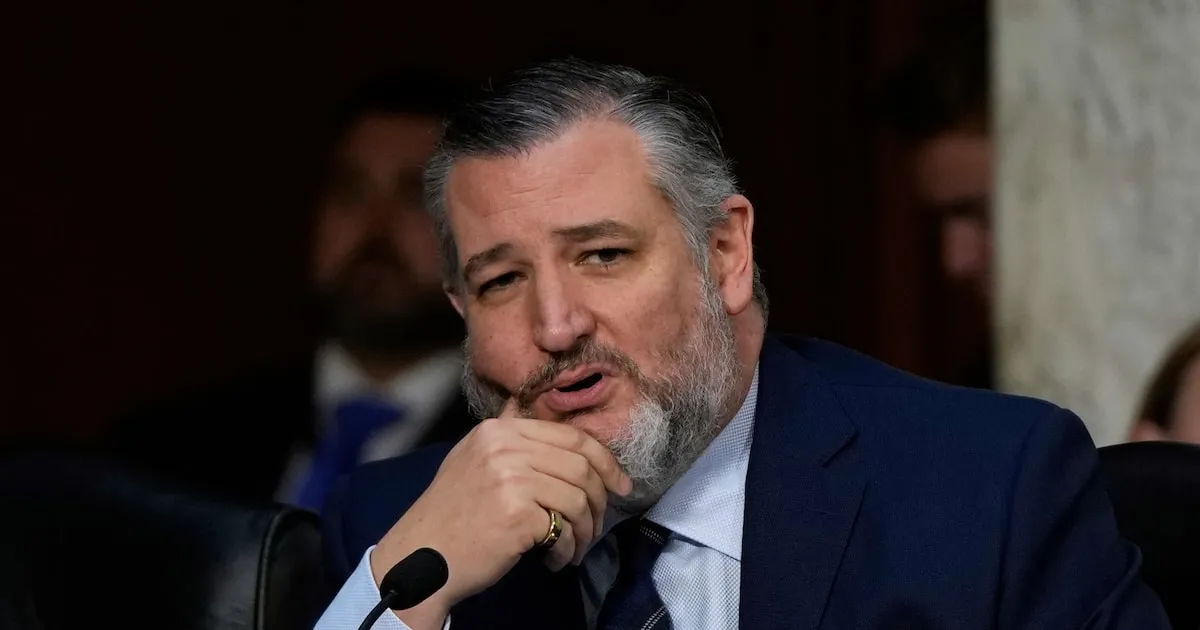
In a recent podcast, U.S. Senator Ted Cruz expressed strong disapproval of remarks made by late-night host Jimmy Kimmel regarding the assassination of conservative activist Charlie Kirk. Cruz criticized FCC Chairman Brendan Carr, likening his tone to that of an organized crime boss threatening the broadcasting licenses of major networks like ABC. This statement raises important questions about the implications of high-ranking federal officials exerting pressure on media outlets.
During his Friday podcast, Cruz emphasized the dangers of government officials threatening media organizations. He warned that such actions could lead to a slippery slope of government censorship, particularly affecting conservatives. “If the government gets in the business of saying ‘We don’t like what you the media have said, we’re going to ban you from the airwaves if you don’t say what we like,’ that will end up bad for conservatives,” Cruz stated. His remarks highlight the ongoing debate over freedom of speech and the role of the Federal Communications Commission (FCC) in regulating media content.
This week, ABC made headlines by pulling Kimmel's show off the air indefinitely after he commented on the individual accused of assassinating Kirk, whom authorities described as having a “leftist” ideology. Kimmel remarked on the media's portrayal of the situation, suggesting that some were attempting to distance themselves from the shooter’s political affiliations. This controversy around Kimmel's comments has drawn attention to the responsibilities of networks in depicting such sensitive topics.
In an interview, Carr noted the importance of the FCC's role in ensuring that broadcast licenses are used responsibly and in the public interest. He stated, “We can do this the easy way or the hard way,” implying that networks have the option to modify their conduct regarding controversial content. His comments have prompted scrutiny, especially since the FCC holds the authority to grant and revoke broadcasting licenses based on a public interest standard.
President Donald Trump defended Carr, calling him a “courageous person” and expressing his disagreement with Cruz’s criticisms. Trump reiterated his concerns about negative media coverage, emphasizing the expectation that broadcasters maintain honesty and integrity to retain their licenses. The tension between Cruz, Kimmel, and the FCC highlights the ongoing conflict over media accountability and political commentary.
In light of the controversy, U.S. Representative Jasmine Crockett has introduced legislation aimed at preventing the FCC from compelling media companies to adopt or suppress specific political viewpoints. Crockett argues that such measures are necessary to protect free speech and prevent censorship. “It is critical that we add these protections so Americans can freely express their opinions—without fear, without coercion, and regardless of politics,” she stated.
State Representative James Talarico criticized Kimmel's removal from the air as a manifestation of the worst kind of cancel culture, where corporate media yield to political pressures. Talarico asserted that he stands against cancel culture, regardless of its source. This sentiment underscores the complex relationship between media, politics, and public discourse in today's society.
The ongoing discussions surrounding the FCC, media content, and political speech raise critical questions about the future of free expression in the United States. As lawmakers and media figures navigate these challenges, the balance between maintaining public interest and protecting free speech remains a contentious issue. With powerful figures like Cruz and Carr involved, the implications of their actions extend far beyond the immediate controversy surrounding Kimmel's comments.